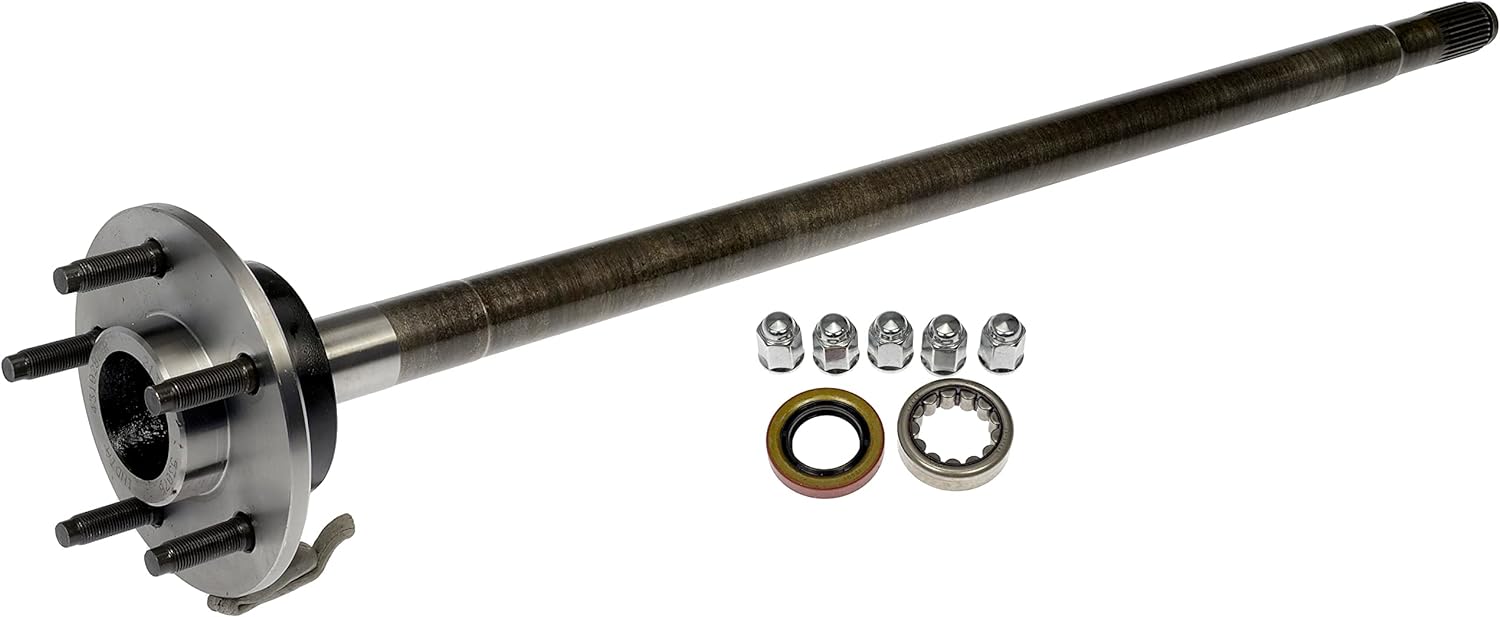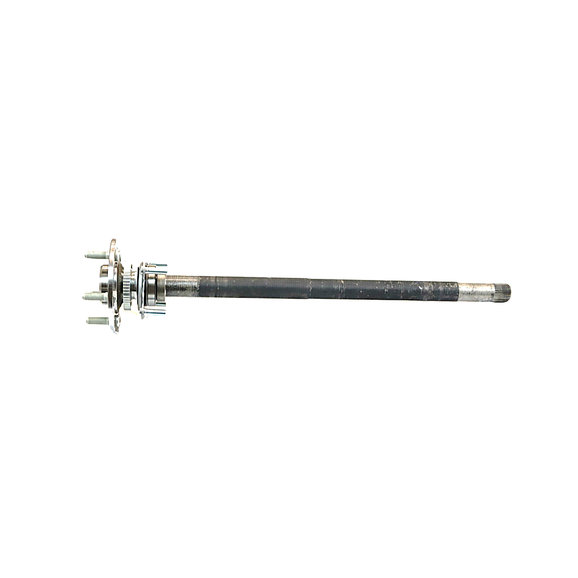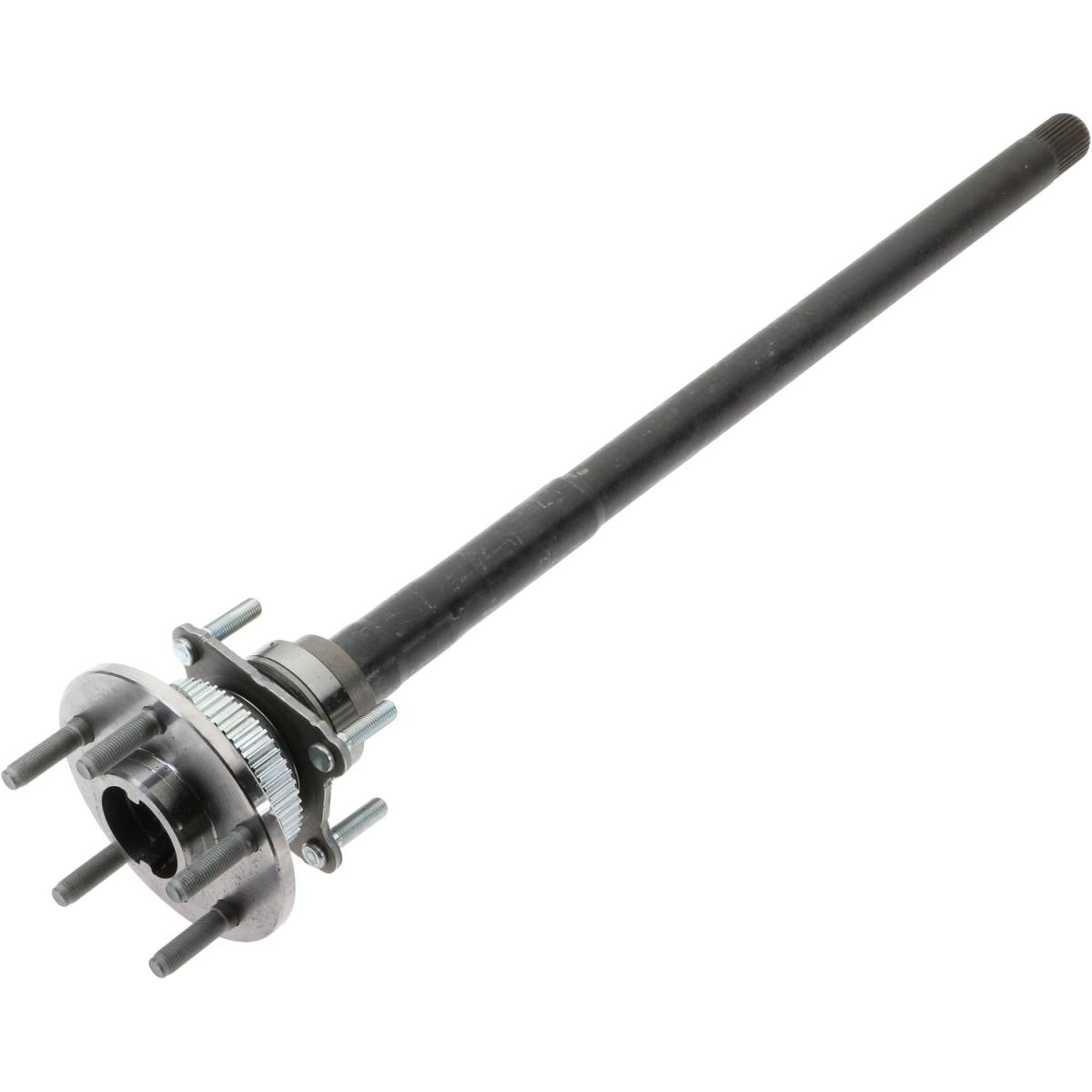Product Description
Product Description
C45E 4130 EN19 Hot Forged Alloy Steel Pump Axle Trunnion Shaft
ZheJiang Qilu Industrial Co., Ltd has the capacity to guarantee the quality for every step, from raw material (forging), then heating treatment, finally machining. We have our own forging mill, heating teatment shop and machining shop. At present we could supply various of lage main shaft, turbin shaft, cylinder shaft, windy generator shaft, roller shaft, wheel forging, drill bit forging and kinds of irregular parts based on the drawing provided by customers.
Steel material for shaft and forging parts:
| Engineering Steel | |||||
| GB GB/T 700 |
JIS JIS G3101 |
DIN (W-Nr.) EN10571-2 / DIN17100 |
AISI/ASTM ASTM A36 |
BS | OTHERS |
| Q235B | SS400 | S235JR / RST37-2 | A36 | ||
| Q235C | S235J0 / ST37-3 U | ||||
| Q235D | S235J2 | ||||
| GB GB/T1591 |
JIS | DIN (W-Nr.) EN10571-2 / DIN17100 |
AISI/ASTM | BS | OTHERS |
| Q355B | S355JR | ||||
| Q355C | S355J0 / ST52-3U | ||||
| Q355D | S355J2 / ST52-3 N | ||||
| Q355E | S355K2 | ||||
| GB GB/T 699 |
JIS JIS G4051 |
DIN (W-Nr.) EN 10083-2 |
AISI/ASTM ASTM A20 |
BS | OTHERS |
| 1018 | EN2C | ||||
| 20 | S20C | C20 | 1571 | EN3B/070M20 | ASTM A105 |
| 35 | S35C | C30 | 1035 | ||
| 45 | S45C | C45E/1.1191 | 1045 | EN8D/080M40 | |
| 50 | S50C | C50/1.1206 | 1050 | 080M50 | |
| 55 | S55C | C55 | 1055 | EN9/070M55 | |
| GB GB/T 3077 |
JIS JIS G4105/JIS G4103 |
DIN (W-Nr.) EN 15710 |
AISI/ASTM ASTM A29 |
BS BS 970 |
OTHERS |
| 40Cr | SCr440 | 41Cr4(1.7035) | 5140 | ||
| 15CrMo | SCM415 | 16CrMo44/1.7337 | |||
| 20CrMo | SCM420 | 18CrMo4/1.7243 | 4118 | ||
| 30CrMo | SCM430 | 25CrMo4/1.7218 | 4130 | 708A25/708M25 | |
| 42CrMo | SCM440 | 42crmo4/1.7225 | 4140 | EN19/709M40 | |
| SCM445 | 4145 | ||||
| 40CrNiMoA | SNCM 439/SNCM8 | 36CrNiMo4/1.6511 | 4340 | EN24/817M40 | |
| 40NiMoCr10-5/1.6745 | EN26/826M40 | ||||
| 34CrNiMo6 / 1.6582 | 4337 | ||||
| 30CrNiMo16-6/1.6747 | 4330V | EN30B/835M30 | |||
| 32CrMo12/1.7361 | EN40B/722M24 | ||||
| 16CrMnH / 20CrMnTi | 16MnCr5 / 1.7131 | 5115 | |||
| 20CrMn | 20MnCr5 / 1.7147 | ||||
| 15CrNi6/1.5919 | 3115 | ||||
| 16NiCr4/1.5714 | EN351/637M17 | ||||
| 4615/4617 | EN34/665M17 | ||||
| 14NiCr14/1.5752 | 3310/3415 | EN36/655M13 | |||
| 15NiCrMo16-5/1.6723 | EN39/835M15 | ||||
| 17CrNiMo6 | 18CrNiMo7-6 (1.6587) | 4815 | |||
| 20CrNiMo | SNCM220 | 1.6523/21NiCrMo2 | 8620 | 805M20 | |
| 20CrNiMo5 | EN353 | ||||
| GCr15 | SUJ2 | 52100/1.3505 | EN31/535A99 | ||
| 38CrMoAl | SACM645 | 41CrAlMo7/34CrAlMo5 | 905M39/905M31 | 41CrAlMo74(ISO) | |
ZheJiang Qilu Industrial Co., Ltd were already engaged in exporting steel for 11 years, could supply a great variety of hot forged, hot rolled and cold drawn Steels, including engineering steel, cold work tool steel, hot work tool steel, plastic mold steel, spring steel, high speed steel, stainless steel etc., besides Qilu Industrial also has their own heating treatment shop and machining shop to provide heating treatment, cutting and further machining service.
Since 2008 year, ZheJiang Qilu Industrial has the right to export all FORGED STEEL behalf of Qilu Speical Steel Co.,ltd which is specialized in smelting and forging of special steel since 1965 year, now Qilu special steel is 1 of the biggest manufacturer of forged product in China.The forged products are used in Automotive, Aerospace, Power Generation, Oil & Gas, Transportation and Industrial.
Till 2013 year, many customers need HOT ROLLED and COLD DRAWN steel from Qilu Industrial, in order to provide one-stop solution to our customers, Qilu Industrial began to cooperate with Xihu (West Lake) Dis.bei Special Steel (HangZhou and HangZhou mill), Baosteel, Tiangong International, Changcheng Special Steel for hot rolled tool steel, cooperate with HangZhou Speical Steel, HangZhou HangZhou Speical Steel, Shagang Group, CZPT Group for hot rolled engineering steel. Now we already set up the warehouse in HangZhou and HangZhou City, more than 20000 tons ex-stock could be supplied with kinds of sizes.
Then from 2018 year, Qilu Industrial decide to provide further manufacturer processing service, at present we could supply various of lage main shaft, turbin shaft, cylinder shaft, windy generator shaft, roller shaft, wheel forging, drill bit forging and kinds of irregular parts based on the drawing provided by customers.
Qilu Industrial is the professional one-stop steel manufacturer, stockist and exporter in China, our customers spread all over the world, include West Europe, North America, South America, Asia, Middle Asia, Africa, Australia, etc.
The company owns advanced special steel smelting facilities and forging processing equipments, the main steel-making equipment include 2 sets of 50t ultra-high power electric arc furnaces,2 sets of 60t LF refining furnaces,1 set of 60t vacuum degassing refining CZPT and 4 sets of 1-20t electroslag re-melting furnaces.
The main forging equipments mainly include:3 sets of 5t electro-hydraulic hammers, 1 set of high-speed forging units of 800t,1600t,2000t and 4500t respectively.
/* March 10, 2571 17:59:20 */!function(){function s(e,r){var a,o={};try{e&&e.split(“,”).forEach(function(e,t){e&&(a=e.match(/(.*?):(.*)$/))&&1
| Material: | Alloy Steel |
|---|---|
| Load: | Central Spindle |
| Stiffness & Flexibility: | Stiffness / Rigid Axle |
| Journal Diameter Dimensional Accuracy: | IT6-IT9 |
| Axis Shape: | Straight Shaft |
| Shaft Shape: | Stepped Shaft |
| Customization: |
Available
| Customized Request |
|---|

Are there potential challenges or limitations to using specific axle shafts?
Using specific axle shafts in vehicles can come with challenges or limitations depending on various factors such as the design of the vehicle, the intended use, and the specific characteristics of the axle shafts. Here’s a detailed explanation of potential challenges or limitations associated with specific axle shafts:
- Compatibility: One challenge is ensuring compatibility between the axle shafts and the vehicle’s drivetrain configuration, suspension system, and overall design. Axle shafts must be designed to fit the specific vehicle model and its corresponding drivetrain layout. Using incompatible axle shafts can lead to improper fitment, compromised performance, or even mechanical failures.
- Strength and Durability: Depending on the vehicle’s weight, power output, and intended use, specific axle shafts may have limitations in terms of strength and durability. Axle shafts subjected to heavy loads, aggressive driving, or off-road conditions may require higher-strength materials or specialized designs to withstand the forces and torque applied to them. Using axle shafts that are not adequately designed for the vehicle’s demands can result in premature wear, bending, or breakage.
- Performance Trade-offs: Different types of axle shafts offer different performance trade-offs. For example, solid axle shafts may provide durability and simplicity but can result in a harsher ride quality and limited independent wheel movement. On the other hand, CV (constant velocity) axle shafts offer smoother power delivery and greater wheel articulation but may have limitations in terms of torque capacity and durability under extreme conditions. It’s important to consider the specific requirements and priorities of the vehicle’s performance and select axle shafts accordingly.
- Cost and Availability: Certain axle shafts, especially those designed for specialized applications or high-performance vehicles, may be more expensive or harder to source compared to standard axle shafts. Limited availability can pose challenges when it comes to replacement or upgrade options. Additionally, aftermarket axle shafts might not always meet the same quality standards as original equipment manufacturer (OEM) parts, which could impact their performance and reliability.
- Modifications and Customization: Modifying or customizing axle shafts can introduce additional challenges. Altering axle shafts to accommodate different drivetrain configurations, wheel sizes, or suspension setups may require specialized knowledge, engineering expertise, and fabrication skills. Improper modifications can negatively affect the vehicle’s stability, handling, and safety.
- Serviceability: Some specific axle shafts might have limited serviceability or require specialized tools or expertise for maintenance, repair, or replacement. This can impact the availability and cost of servicing the vehicle. It’s important to consider the long-term serviceability and support for specific axle shafts when selecting them for a vehicle.
It’s crucial to consult with knowledgeable professionals, such as automotive engineers or experienced mechanics, to ensure the appropriate selection and installation of axle shafts for a specific vehicle. They can provide valuable insights and guidance based on the vehicle’s requirements, intended use, and potential limitations associated with specific axle shafts.
In summary, potential challenges or limitations of using specific axle shafts include compatibility issues, limitations in strength and durability, performance trade-offs, cost and availability considerations, challenges related to modifications or customization, and serviceability concerns. A careful assessment of these factors is essential to ensure the optimal performance, safety, and reliability of the vehicle.

How does axle shaft quality impact the overall durability of a vehicle?
The quality of axle shafts has a significant impact on the overall durability of a vehicle. Axle shafts play a crucial role in transmitting power from the drivetrain to the wheels and supporting the weight of the vehicle. Here’s a detailed explanation of how axle shaft quality affects the durability of a vehicle:
- Strength and Load Capacity: High-quality axle shafts are typically constructed from strong and durable materials, such as forged steel or alloy steel. These materials offer increased tensile and yield strength, allowing the axle shafts to handle higher torque loads and support the weight of the vehicle more effectively. Axle shafts with higher load capacities and structural integrity are less prone to bending, breaking, or premature failure, ensuring long-term durability.
- Resistance to Fatigue: Axle shafts are subjected to repeated and varying loads during vehicle operation, which can lead to metal fatigue over time. High-quality axle shafts are designed and manufactured to withstand these cyclic loads without developing cracks or fractures. They undergo rigorous testing and quality control processes to ensure resistance to fatigue, enhancing the overall durability of the vehicle.
- Corrosion Resistance: Axle shafts are exposed to various environmental factors, including moisture, road salt, and debris. High-quality axle shafts often feature protective coatings or treatments, such as galvanization or specialized finishes, to enhance corrosion resistance. These coatings prevent rust and corrosion from compromising the structural integrity of the axle shafts, contributing to their long-term durability.
- Precision Engineering: Axle shafts with superior quality are precisely engineered to meet strict tolerances and specifications. They are manufactured using advanced techniques, such as forging or CNC machining, to ensure dimensional accuracy and proper fitment with other drivetrain components. Precise engineering eliminates excessive play or misalignment, reducing stress on the axle shafts and enhancing the overall durability of the vehicle.
- Heat Treatment: High-quality axle shafts often undergo specialized heat treatment processes, such as induction hardening or tempering. These heat treatment techniques improve the hardness and strength of the axle shafts, making them more resistant to wear, deformation, and surface damage. Heat-treated axle shafts exhibit enhanced durability and longevity, even under demanding driving conditions.
- Manufacturer Reputation: The reputation of the axle shaft manufacturer is also a crucial factor in determining the quality and durability of the product. Reputable manufacturers with a history of producing reliable and high-quality axle shafts are more likely to deliver durable and long-lasting components. Choosing axle shafts from trusted manufacturers reduces the risk of premature failure and ensures higher overall vehicle durability.
It’s important to note that the durability of a vehicle is influenced by various other factors, including proper maintenance, driving conditions, and overall vehicle design. However, the quality of axle shafts significantly contributes to the vehicle’s ability to withstand demanding loads, harsh environments, and extended service life.
When replacing or upgrading axle shafts, it is crucial to select high-quality components that match the vehicle’s specifications and intended use. Professional installation by experienced technicians is recommended to ensure proper fitment and compatibility, further enhancing the durability and performance of the vehicle.
In summary, axle shaft quality directly impacts the overall durability of a vehicle by providing increased strength, resistance to fatigue and corrosion, precision engineering, heat treatment, and the reliability associated with reputable manufacturers. Investing in high-quality axle shafts contributes to a more durable and reliable vehicle that can withstand the demands of various driving conditions and extended use.

Are there different axle shaft designs for rear-wheel drive and front-wheel drive vehicles?
Yes, rear-wheel drive (RWD) and front-wheel drive (FWD) vehicles typically employ different axle shaft designs to accommodate their respective drivetrain configurations. The axle shafts in RWD and FWD vehicles differ in their construction, orientation, and connection to the wheels. Here’s a detailed explanation of the axle shaft designs used in RWD and FWD vehicles:
Rear-Wheel Drive (RWD) Vehicles:
In RWD vehicles, the engine’s power is transmitted to the rear wheels through the drivetrain components. The axle shaft design in RWD vehicles is commonly referred to as a solid axle or full-floating axle. Here are the key characteristics of RWD axle shafts:
- Rigid Shaft: RWD axle shafts are typically solid and rigid, connecting the differential directly to each rear wheel. They are designed to handle high torque loads and provide robustness, making them suitable for heavy-duty applications.
- Single Connection: Each rear wheel has its own dedicated axle shaft, which connects directly to the wheel hub. The axle shaft transfers power to the wheel, enabling it to rotate.
- Support and Power Transfer: RWD axle shafts support the weight of the vehicle and transmit torque from the differential to the wheels. They facilitate smooth power delivery and enable the rear wheels to propel the vehicle forward or backward.
- Less Articulation: Since RWD vehicles typically have a solid rear axle, the axle shafts have limited articulation compared to FWD vehicles. This design simplifies the construction but may result in reduced suspension flexibility and a harsher ride quality.
Front-Wheel Drive (FWD) Vehicles:
In FWD vehicles, the engine’s power is transmitted to the front wheels through the drivetrain components. FWD axle shafts are commonly known as half shafts or CV axles (constant velocity axles). Here are the main characteristics of FWD axle shafts:
- Compact and Lightweight: FWD axle shafts are typically lighter and more compact than RWD axle shafts. They are designed to accommodate the space limitations in the front-wheel-drive layout.
- Constant Velocity (CV) Joints: FWD axle shafts incorporate constant velocity (CV) joints, which allow for flexibility and rotation at various angles. CV joints compensate for the changing length and angle of the axle shafts during suspension movement and steering.
- Transverse Orientation: FWD axle shafts are positioned transversely across the vehicle, connecting the differential or transaxle to the front wheels. This orientation allows for efficient power transfer and space utilization in FWD vehicles.
- Support and Power Transfer: FWD axle shafts support the weight of the vehicle and transmit torque from the differential or transaxle to the front wheels. They enable the front wheels to rotate and provide the driving force for vehicle movement.
- Increased Articulation: FWD axle shafts have greater articulation capabilities due to the need to accommodate suspension movement and steering angles. The CV joints allow the axle shafts to flex and rotate, ensuring smooth power delivery even when the wheels are turned or the suspension is compressed.
These axle shaft designs in RWD and FWD vehicles are tailored to the specific requirements and configurations of each drivetrain layout. They optimize power transmission, support the wheels, and ensure efficient operation based on the unique characteristics of rear-wheel drive and front-wheel drive systems.


editor by CX 2024-02-04